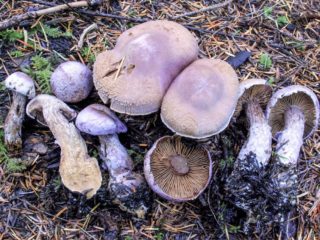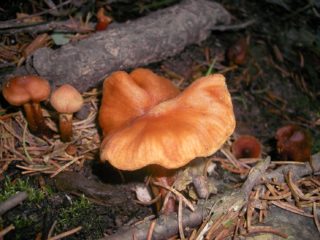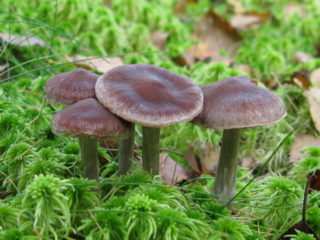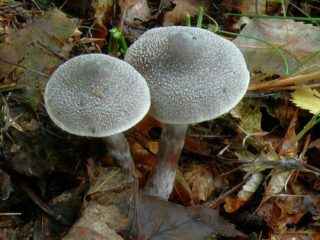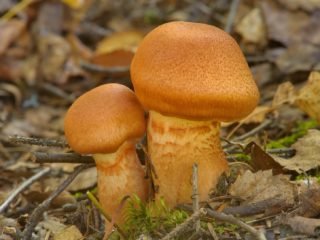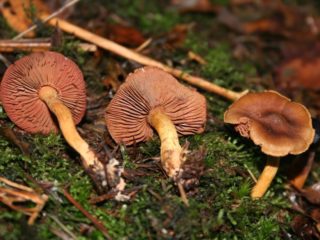Content
The great spider web is widespread throughout the temperate latitudes of Russia, mainly in coniferous forests. Most mushrooms of this family are inedible or poisonous, so mushroom pickers avoid them.
What does a large web spider look like?
The large or plentiful cobweb (Cortinarius largus), like many representatives of the Cobweb family, is more often called the swampweed or marshweed.
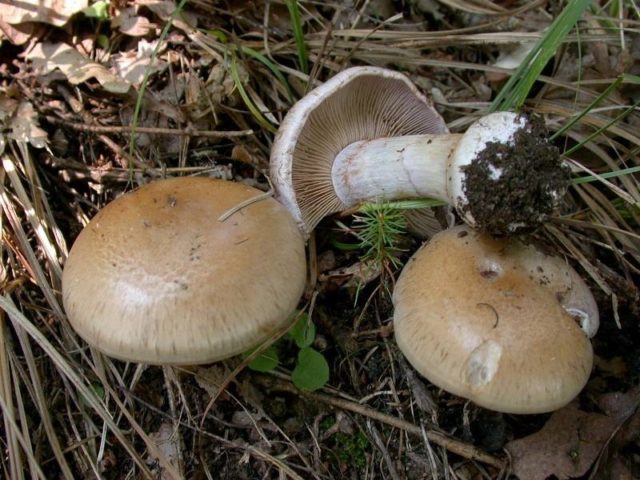
This representative of the family has a fairly large body
Outwardly, this species is unremarkable, however, it differs from other representatives of the family in a very specific shade of the hymenophore, leg, upper part and pulp.
Description of the cap
It has a convex or convex-cushion shape and is light gray in color with a purple tint. Over time, it increases in size and can reach up to 10 cm in diameter.
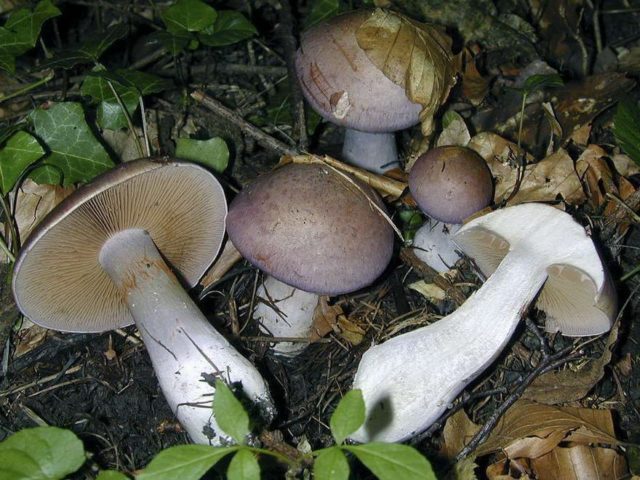
The surface of the cap is smooth and dry
Under it there is a hymenophore with frequently located plates of a lilac hue. Over time, they become brownish or brown in color.
Description of the leg
It is located centrally, has a cylindrical shape, at the end it thickens and expands, acquiring a club-shaped shape. At the base there are particles of the blanket in the form of a ring. The color is light lilac at the base of the cap, downwards it is light brown or brown.
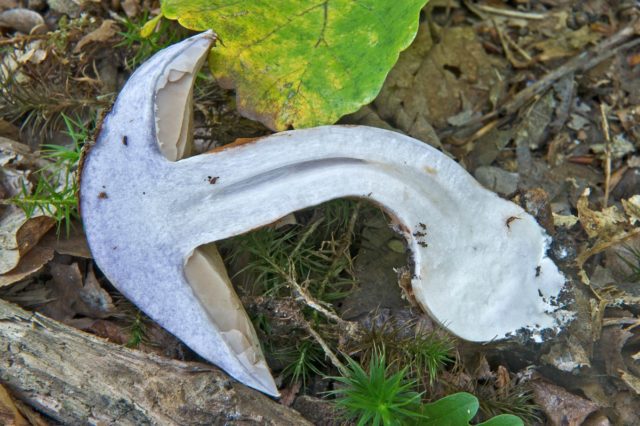
The stem of the fruiting body does not contain cavities
The pulp is of medium density without a characteristic smell or taste, has a light lilac color, which becomes white over time.
Where and how does it grow
Distributed in temperate latitudes of Russia. Grows in deciduous or coniferous forests on sandstones (singly or in groups), forest edges (in families of up to 30 pieces). The best time to harvest is September or mid-October. Often the fruits can be found at the end of October, even during the first frosts.
Is the mushroom edible or not?
The great cobweb is edible in any form. Since its pulp does not have a specific smell or distinct taste, the best option for consuming this product is in pickled or canned form.
Doubles and their differences
The mire, like almost all edible specimens, has inedible counterparts.
Silver marshweed differs in smaller size and light color (white or purple) of the cap and legs. The silver top has a flat shape, as well as folds and bumps on the surface.
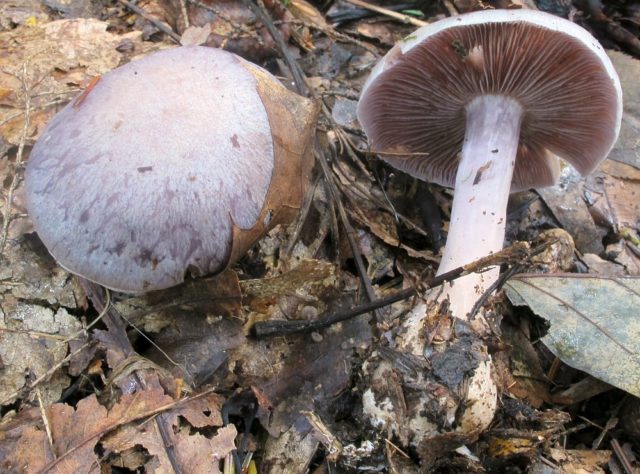
Silver cobweb is an inedible mushroom
Slime marshweed characterized by the presence of mucus on a brown cap and a white spindle-shaped stalk

The slime cobweb is a conditionally edible counterpart of the greater cobweb
Conclusion
Large cobweb is definitely not the most popular mushroom, despite its good taste and large size. Inexperienced mushroom pickers are better off not taking risks and avoiding them, as there is a chance of confusing these fruits with inedible species.
